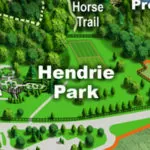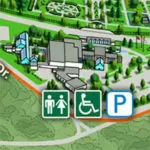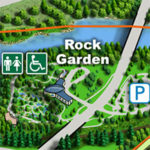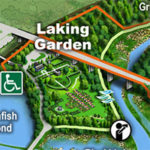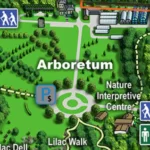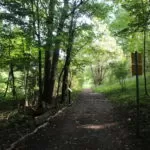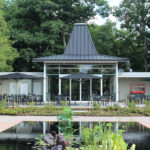| Membership | Price (+HST) |
|---|---|
| Single | $85/year |
| Single Plus | $120/year |
| Family | $130/year |
| Family Plus | $175/year |
| Contributing | $300/year |
| Supporting | $600/year |
| Sustaining | $1,000/year |
| Benefactor's Circle | $2,500/year |
| Director's Circle | $5,000/year |
| President's Circle | $10,000/year |
RBG and partners protect endangered turtles with fencing
Media Release
RBG and partners protect endangered turtles with fencing
Royal Botanical Gardens (RBG) and partners are protecting local endangered turtle populations by installing fencing along Cootes Drive in Hamilton, Plains Road West and Unsworth Avenue in Burlington, busy roads between critical wetland habitats. This collaborative effort with the City of Hamilton, Hamilton Conservation Authority (HCA), and the City of Burlington was a critical component of the Cootes to Escarpment EcoPark System Ecological Corridor Pilot Program.
One of the first initiatives funded by Parks Canada’s National Program for Ecological Corridors is the Cootes to Escarpment EcoPark System Ecological Corridors Pilot Program. A total of 2,742 metres of fencing has been installed to guide small wildlife to under-road culverts and to prevent larger species from entering critical habitat. This effort helps mitigate biodiversity loss and the impacts of climate change by supporting ecological connectivity in the area.
Ecological corridors are safe pathways for plants and animals to move between different habitats or areas in the landscape. They allow plants to spread their seeds and help animals migrate, which is critical for biodiversity. By safely connecting different habitats, ecological corridors help maintain healthy ecosystems.
Animals moving across urban landscapes in search of food, water, new territory, nesting habitats, and mates often encounter human-made obstacles. Roads between Cootes Paradise and the Niagara Escarpment cut through important habitats and are a major hazard for turtles and other small animals trying to travel in the area. RBG, with support from the City of Hamilton, HCA, and City of Burlington have installed fencing to direct turtles and other animals towards culverts under these roads. This helps to reduce road-related mortality and promotes safer conditions for drivers.
RBG, the City of Hamilton, HCA, and the City of Burlington are four of nine EcoPark System partners who, between December 2022 and March 2024, implemented a Parks Canada-funded Ecological Corridor Pilot Program. In addition to making roads and other infrastructure safer for wildlife, this effort focused on working with landowners to create healthy watersheds and restore critical local habitat.
Although EcoPark System partners play an important role in addressing biodiversity loss, community members and landowners alike can also act to combat climate change and its effects by volunteering their time to EcoPark System partners and local groups like the Dundas Turtle Watch and being stewards of their property. People interested in learning more about volunteer and stewardship opportunities can visit the EcoPark System website and register for an upcoming Open House on ecological corridors at cootestoescarpmentpark.ca.
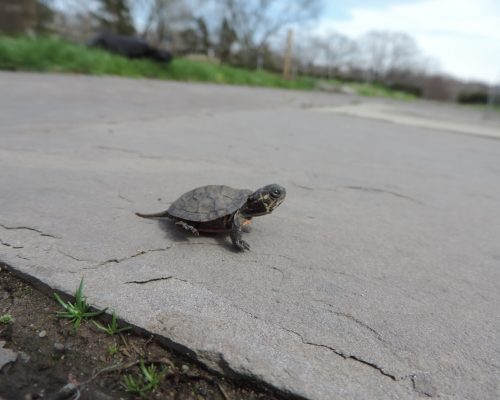
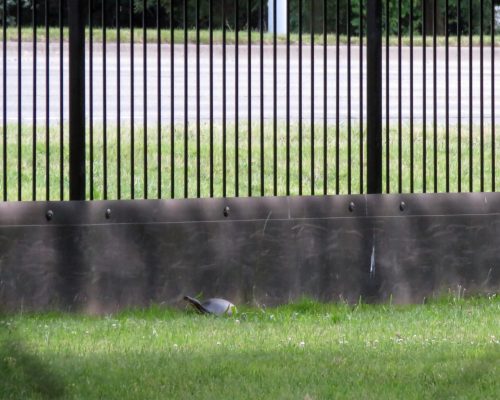
Additional Information:
Cootes to Escarpment EcoPark System
- The Cootes to Escarpment EcoPark System is a voluntary park alliance in which the participating agencies own and manage their lands individually but collaborate on areas of mutual interest.
- Launched in 2013, nine government and not-for-profit agencies collaborated to collectively protect nearly 2,200 ha of open space and nature sanctuary between Cootes Paradise Marsh, Hamilton Harbour, and the Niagara Escarpment.
- This is a complex, biologically diverse, and fragmented landscape of protected lands, open space, urban development, and other uses at the western end of Lake Ontario that is home to the only remaining terrestrial ecological corridor between the Niagara Escarpment and Lake Ontario coastal wetlands.
- The nine organizations in the EcoPark System are the Bruce Trail Conservancy, City of Burlington, City of Hamilton, Conservation Halton, Halton Region, Hamilton Conservation Authority, Hamilton Naturalists Club, McMaster University, and Royal Botanical Gardens.
- To date, the alliance has successfully secured an additional 120 ha of natural areas, raised over $8,000,000 for programming, planning, and land securement since the program was founded in 2013, collaborated on several ecological restoration, recovery, and remediation projects on partner properties, and engaged with the public and landowners through education, research, and outreach activities.
Cootes to Escarpment EcoPark System Ecological Corridor Pilot
- One of the first initiatives funded by Parks Canada’s National Program for Ecological Corridors is the Cootes to Escarpment EcoPark System Ecological Corridors Pilot Program
- The pilot program is helping the alliance better understand and develop the local landscape as a set of ecological corridors through EcoPark System partner-led projects that are:
- Reaching out to private landowners to assist with the landscape between protected areas,
- Investigating opportunities to protect additional areas,
- Restoring habitat in key areas and corridors, through the removal of invasive species, planting native plants, and barrier enhancement or removal to help wild species cross built areas and roads, and
- Inviting Indigenous communities and Knowledge Holders to participate and share knowledge regarding the land and its management
- Investigating and applying monitoring and measures to gauge the success of the overall program from the perspective of ecological corridor function
- Ecological corridors support the uninhibited movement and migration of species between conserved areas, allowing them to interact and find habitat. They also allow other natural processes, like pollination, to occur across the broader landscape and provide opportunities for people and communities to access greenspaces close to home and to co-exist responsibly and sustainably with nature.
- Funding for the Ecological Corridor Pilot Program is supported by a $3.5 million contribution from Parks Canada to the Royal Botanical Garden towards the Cootes to Escarpment EcoPark System. The Cootes to Escarpment EcoPark System Management Committee is responsible for providing oversight of the budget for this program.
Media Contacts:
For partner specific project enquiries: please contact the agency’s media representative
For general Cootes to Escarpment Pilot Program enquiries: Tomasz Wiercioch Program Manager, Cootes to Escarpment EcoPark System 905-527-1158, ext 225 twiercioch@rbg.ca
For Parks Canada enquiries: National Program for Ecological Corridors Parks Canada Agency corridorsecologiques-ecologicalcorridors@pc.gc.ca

